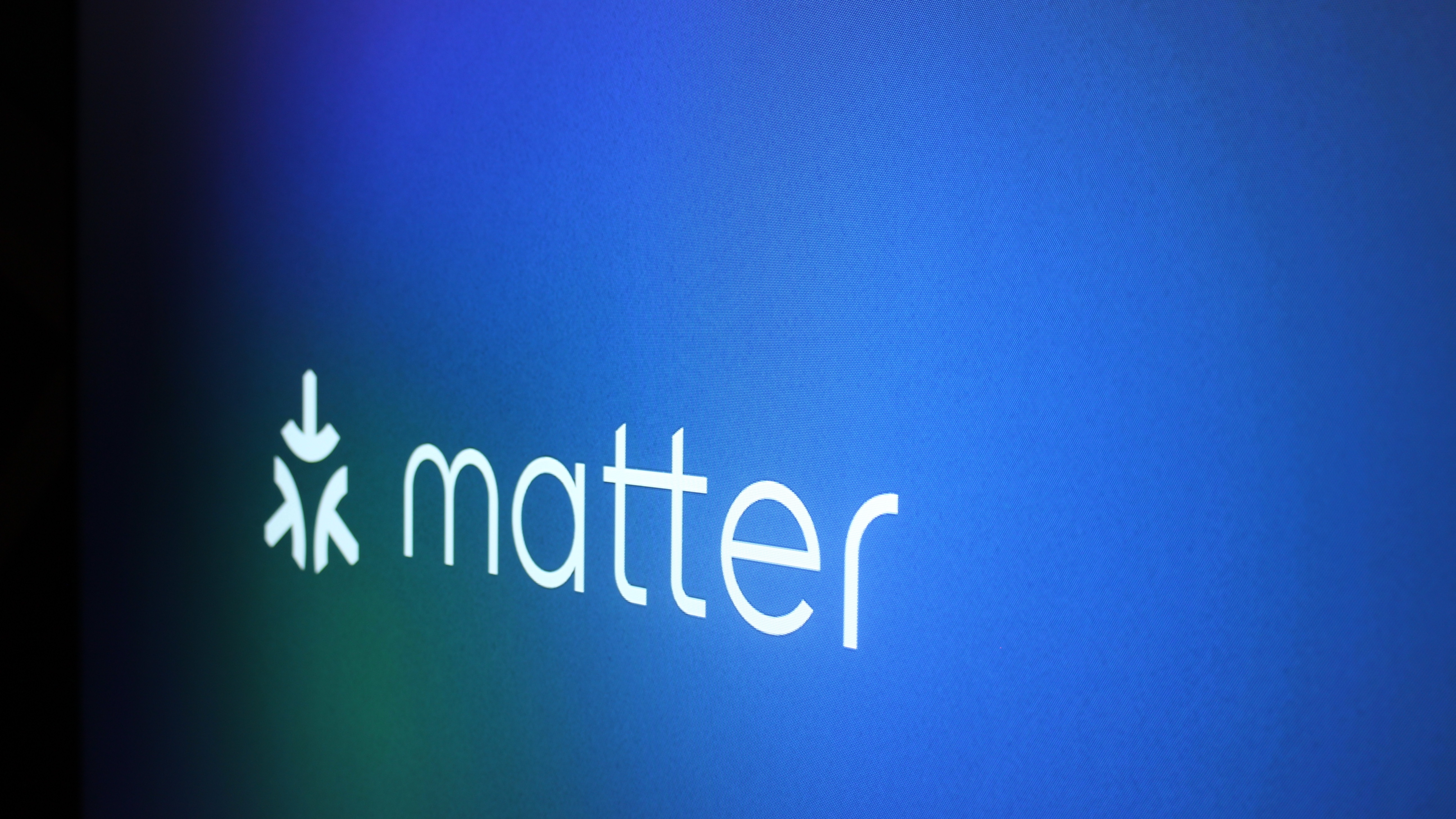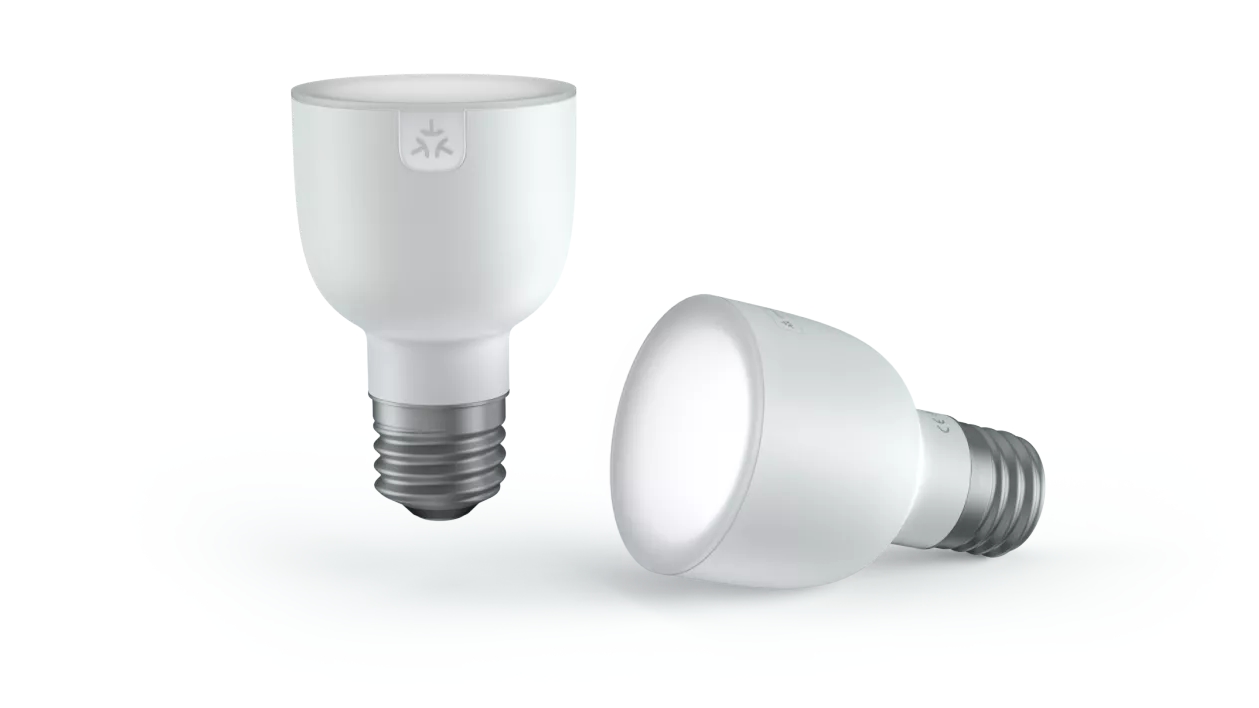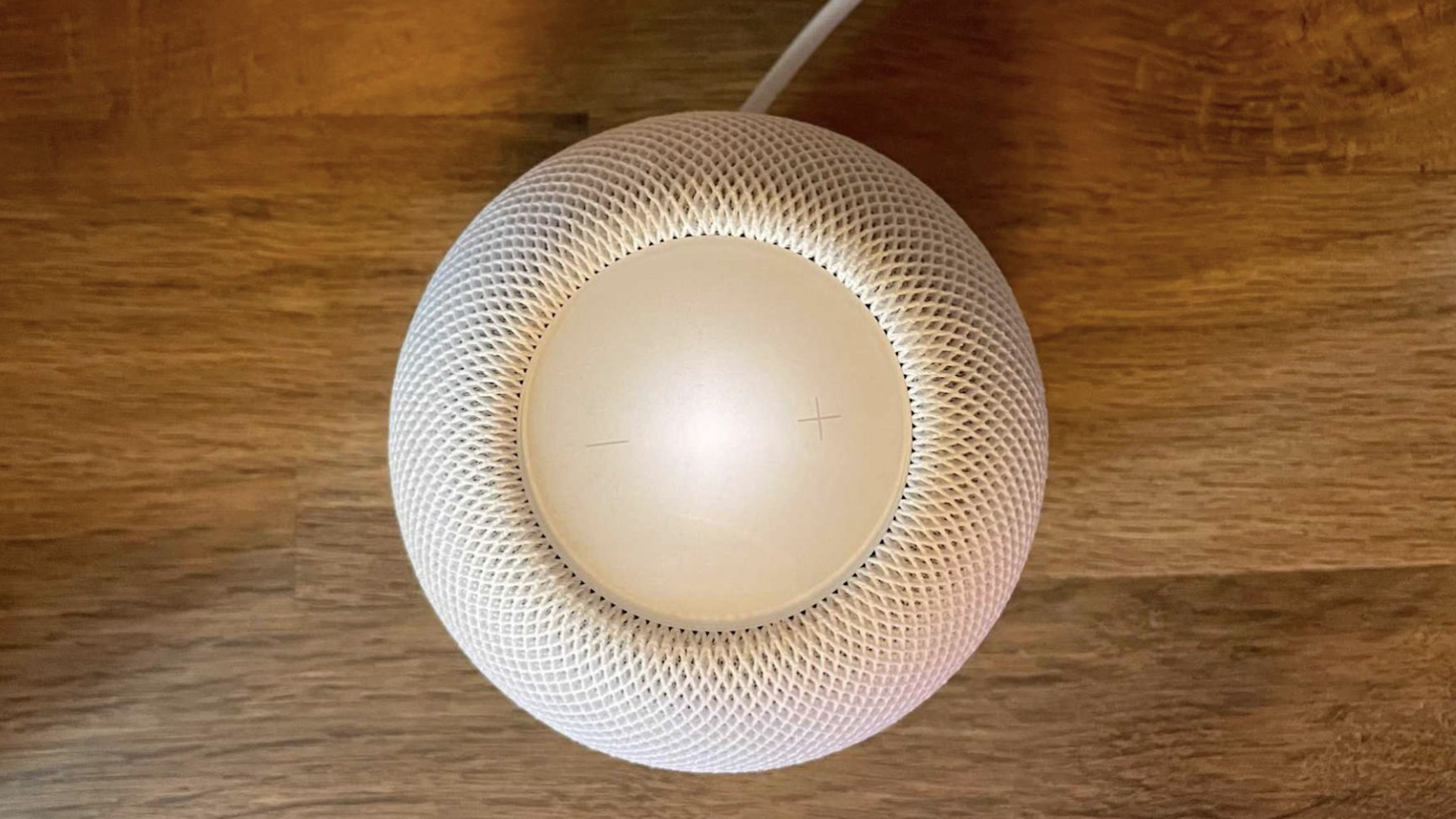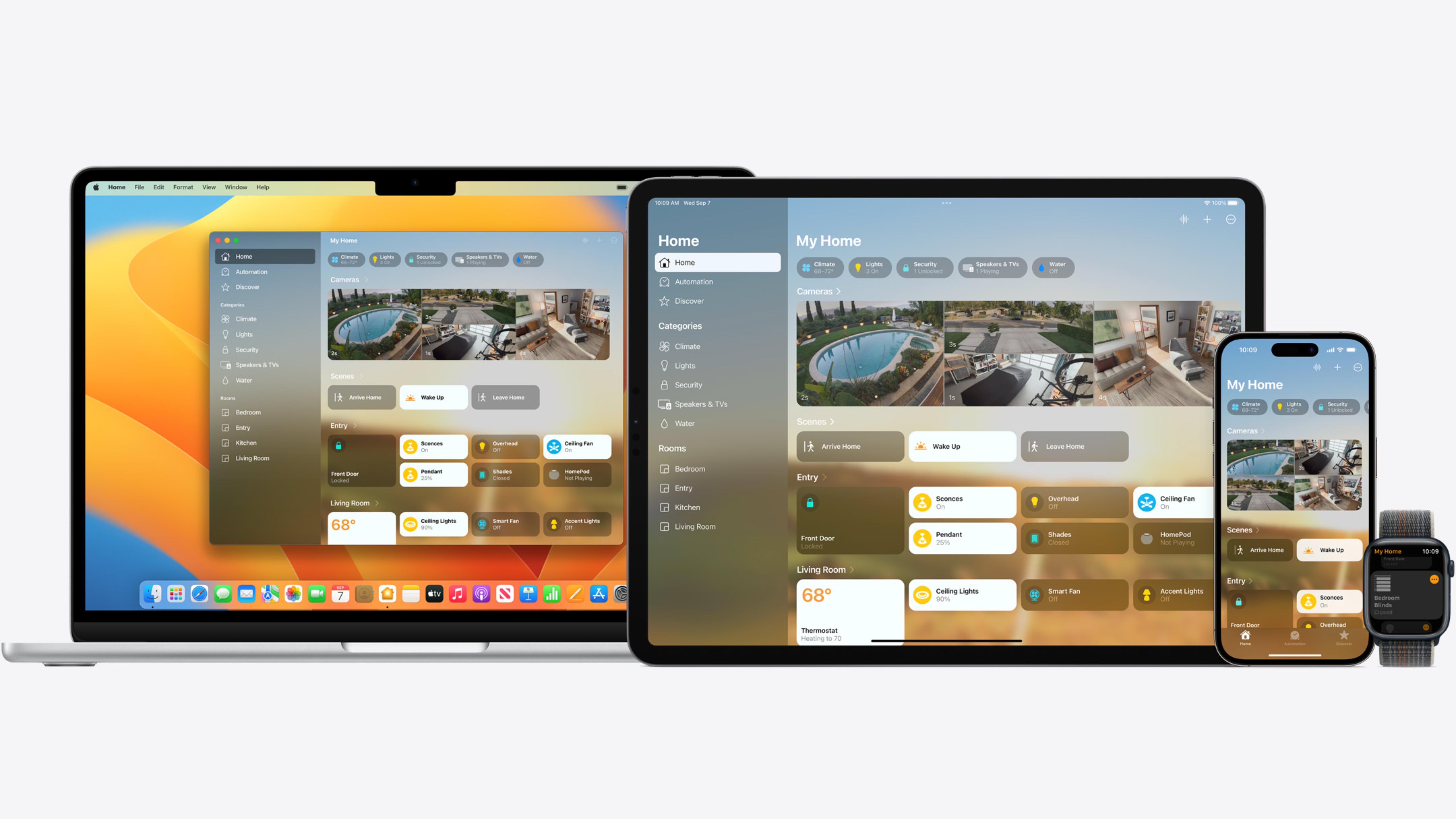What is Matter? Everything you need to know about the Apple-backed smart home standard
A new era of the smart home is here with Matter.

Matter is a brand new smart home connectivity standard you may have heard of. It that sounds complicated, don't worry. Matter is aiming to be the smart home equivalent of Bluetooth is to headphones.
That's going to be the case no matter what kind of device you have, whether it's a laptop, PC, one of the best iPads, iPhone or even an Android phone. Matter aims to unite HomeKit, Google Home, Amazon, and more, so you never have to worry about smart home compatibility ever again. You just buy the devices you need and want, and control them in the best way that suits you.
Sounds a little too good to be true after years of trying to make all your smart home devices play nicely together? You'll be surprised. Here's a look at everything you need to know about Matter and how it could enrich your setup.

Stephen Warwick is a smart home expert with six years industry experience covering Apple. He uses smart home products daily, and has helped compose iMore's buyer guides and write smart home news coverage. He also attended the launch of Matter in Amsterdam, conducting interview with Amazon, Google, Nanoleaf, and more.
What is Matter?
Formerly known as Project Connected Home over IP (CHIP), the far more catchily titled Matter is a new standard for smart home devices. It's backed by Apple, Google, Amazon, and other big names in the Connectivity Standards Alliance. The aim is to increase interoperability between smart home devices across platforms. It also boasts the support of some notable smart home brands, such as Nanoleaf, Netatmo, Eve, and more.
"This industry–unifying standard is a promise of reliable, secure connectivity—a seal of approval that devices will work seamlessly together, today and tomorrow."
Such interest means that Matter should theoretically lead to popular devices from big-name brands like Ring video doorbells and Nest smart thermostats to work just as well with your Apple equipment and the home app as all the best HomeKit accessories currently do today.
How does Matter work?
Matter is built upon Internet Protocol (IP). It uses existing networking technologies to unify smart home platforms that you already know about. Matter-certified devices use standard connections like Wi-Fi, Bluetooth LE, and Thread to connect to your network as well as with each other. It's likely too that as technologies advance, Matter will continue to incorporate new standards.
The idea is that it means manufacturers that adopt Matter can make their products compatible with Apple's HomeKit and the Home app, as well as Amazon's Alexa, and Google Assistant, all without needing to support multiple protocols in parallels. For users, the Matter logo will give consumers confidence that the product will work with their smart home, no matter what ecosystem they may be currently using.
Master your iPhone in minutes
iMore offers spot-on advice and guidance from our team of experts, with decades of Apple device experience to lean on. Learn more with iMore!
For Apple device owners, it means no more limitations to devices that only support Apple's HomeKit. That means a whole new world of accessories. Conversely, that also means devices that were only for HomeKit in the past will now work with other ecosystems.
Will Matter work with HomeKit and the Home app?
Yup! Apple is a member of the Connectivity Standards Alliance so Matter devices will work through the Home app as well as with Siri, all alongside existing HomeKit-enabled devices. Support for Matter was built into iOS 16 so developers can already begin adding support to their smart home apps. That means your iPhone 14 Pro, for instance, is all ready to go with Matter.
Will Matter work with AirPlay 2?
When Matter was first announced, there was no specific mention of how it would interact with AirPlay 2 or Google Cast. Since then though, there have been reports that a standardised casting system will be part of the Matter spec. That could serve to replace these proprietary systems with a platform-agnostic approach, opening things up for users.
However, manufacturers that sign up to work alongside Matter aren't under any obligation to implement all parts of the matter spec. That could mean that AirPlay lives on in Apple devices. It's too early to say at this time.
When will we see products that work with Matter?

There are already a number of devices that work with Matter, and that list is only going to grow over time. If you're planning ahead, take a look at the best devices that work with Matter so far to see what works for your needs.
Will Matter work with older smart home devices?
It's currently not clear what the transition process will be like and what older devices will work with Matter. Whether or not your existing smart home devices will see Matter support depends on the manufacturers and the specs of the individual products.
As Matter works with existing tech standards such as Wi-Fi, Thread, Zigbee, and Bluetooth LE, it's possible that a firmware update could be issued to devices to push out support for Matter.
That depends on if the devices have modern enough components to meet Matter's requirements, so we'll have to wait and see what existing products gain official support. It's likely that these will be newer devices rather than much older products.
We've heard from a few manufacturers like Philips Hue, Yale, and Google's Nest brand that they will add Matter support to existing devices. That should bode well for those with existing smart home setups. However, some manufacturers such as Nanoleaf have stated that some existing product lines lack the capability to support Matter which means new hardware will be needed.
How does Matter work with Thread?

Right now, Thread is another major force in the smart home space. It's a mesh networking protocol that is built into newer smart home accessories like the HomePod mini and Apple's new HomePod 2. It allows for more streamlined inter-device communication so you get faster response times and a much more reliable experience while using such products.
Thread is going to be one of many networking technologies that Matter is built on. It goes alongside Wi-Fi, Zigbee, Bluetooth LE, and Ethernet. While it's not essential for Matter certification, we're expecting to see many more devices adopt Thread in the future.
Why does all this matter?

Smart technology is an increasingly important part of everyone's home. However, it can be tricky to traverse between ecosystems. If you use Apple equipment, it makes sense to kit your home out with HomeKit-compatible devices, but it can make it more difficult and expensive if you change your mind later on. Similarly, Android users have to focus on products that play well with Google Assistant while knowing if they decide to switch to iPhone, they may end up with unsupported devices.
Matter sets out to make these different ecosystems more interoperable which has to be a good thing for the consumer. With the backing of the major players such as Apple, Amazon, and Google, this should result in much more freedom of choice as well as less hassle when it comes to finding the right devices. For now, the exact implementation details are unclear which is why there are different ways to see how Matter will both matter and not matter in the future, but it's certainly one to watch.

Stephen Warwick has written about Apple for five years at iMore and previously elsewhere. He covers all of iMore's latest breaking news regarding all of Apple's products and services, both hardware and software. Stephen has interviewed industry experts in a range of fields including finance, litigation, security, and more. He also specializes in curating and reviewing audio hardware and has experience beyond journalism in sound engineering, production, and design. Before becoming a writer Stephen studied Ancient History at University and also worked at Apple for more than two years. Stephen is also a host on the iMore show, a weekly podcast recorded live that discusses the latest in breaking Apple news, as well as featuring fun trivia about all things Apple. Follow him on Twitter @stephenwarwick9
